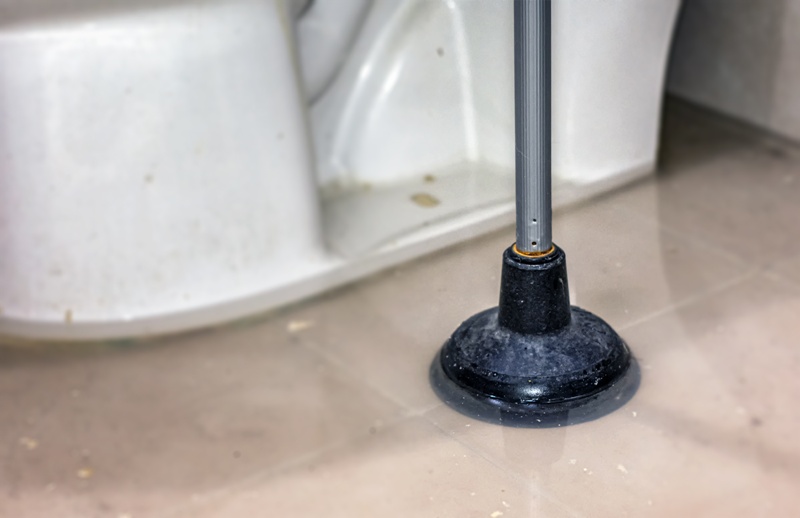For first-time homeowners, there are various considerations to make in order to ensure that your property stays in excellent condition, especially the plumbing.
Making sure that the plumbing system is functional is crucial to make your new home a livable place. With basic knowledge about plumbing and regular maintenance, you can keep the plumbing system running smoothly and avoid any problems along the way. As a first-time homeowner, you should know that you’ll likely require plumbing services at some point. If you’re eager to learn about what plumbing services are available to you, looking into mainline specials and similar solutions would be helpful.
For first-time homeowners, here’s a checklist to ensure that you stay up to date with your home’s plumbing maintenance.
Schedule An Inspection
The plumbing history of your house is an essential factor in understanding how the entire plumbing system functions. Make sure to find out how old the pipes are and if they require replacement soon. Repiping or rerouting lines can mean extra costs for you.
Before moving into your new home, it’s crucial to schedule an inspection by a plumber. Doing so will help identify any areas that require attention.
Take Care Of The Drains
The drains in your house will require regular cleaning, but you might be causing further damage if you’re using the wrong product. If you decide to clean the drains yourself, steer clear of chemical drain cleaners since they’re toxic, detrimental to health, and can eventually lead to the weakening of the pipes. Additionally, these chemical drain cleaners can harm the environment.
If you want to go for a do-it-yourself (DIY) approach, you can utilize ingredients in the kitchen such as lemon, vinegar, and baking soda. Here are some tips to prevent blockage in your drains:
- Make sure not to dispose of cooking oil and grease by pouring them down the sink.
- Avoid placing vegetable peels, eggshells, coffee grounds, and bones in the garbage disposal.
- Use a drain or screen grate to cover the drain’s opening to reduce problems with soap scum and hair.
- Allow hot water to flow through the drain after use. The hot water helps move the oil in food products down the drain instead of accumulating on the interior surface of the pipes.
- Sprinkle baking soda into the opening of the drain and follow it up with hot water. Aside from being an efficient cleaning agent, baking soda effectively absorbs foul odors to keep the drain smelling fresh.
- Pour a cup of vinegar and let it sit for up to 30 minutes, and then pour hot water. Vinegar contains acetic acid that effectively dissolves the organic buildup of crud in the pipes.
You can also employ the services of a plumber in performing regular drain cleaning to ensure that the drain is working properly at all times.
Use The Toilet Properly

When using the toilet, learning what can and cannot go down will significantly help avoid a potentially messy problem in the future. Flushing the wrong item can clog up the entire plumbing system.
Remember that you should flush only toilet paper and human waste. Some of the items you should never do that to include:
- Hair
- Wipes
- Paper towels
- Cigarettes
- Cat litter
- Gum
- Sanitary products
- Other types of trash
It’s advisable to know how to use a plunger in case the toilet clogs up.
Determine The Location Of The Shut-Off Valves
During plumbing emergencies, it’s good to be aware of the location of the shut-off valves for both the water and gas. Remember that a leak can be messy and result in significant damage to your property. Knowing the location of the shut-off valves can help in preventing further damage.
Depending on the plumbing layout in your home, several shut-off valves might be supplying water to various fixtures and appliances all over the house. Those will come in handy because if you have only one leaking fixture or appliance, you should switch off the main water supply.
In some instances, there’s a need to shut down the main water supply to your house, the valve for which is typically located outside.
Get Useful Plumbing Tools
If you want to be prepared to deal with minor plumbing issues, you should have tools such as the following readily accessible:
- Wrenches
- Plunger
- Flashlight
- Screwdrivers
- Tape measure
- Allen wrenches
- Heavy-duty gloves
Know When To Call A Plumber For Emergencies
When it comes to plumbing, there’ll come a time when you’ll face a problem that would require immediate attention. If you encounter a plumbing issue that’s too complex and beyond your skill level, get in touch with a plumber right away. An example of a plumbing emergency is a broken pipe. After the water has been shut off, call a plumber at once to carry out repairs.
Conclusion
The best way to ensure that the plumbing system in your new house is in good shape is to hire a plumber. Along with basic plumbing knowledge and routine maintenance, you can keep the plumbing in your home functional for years to come.






